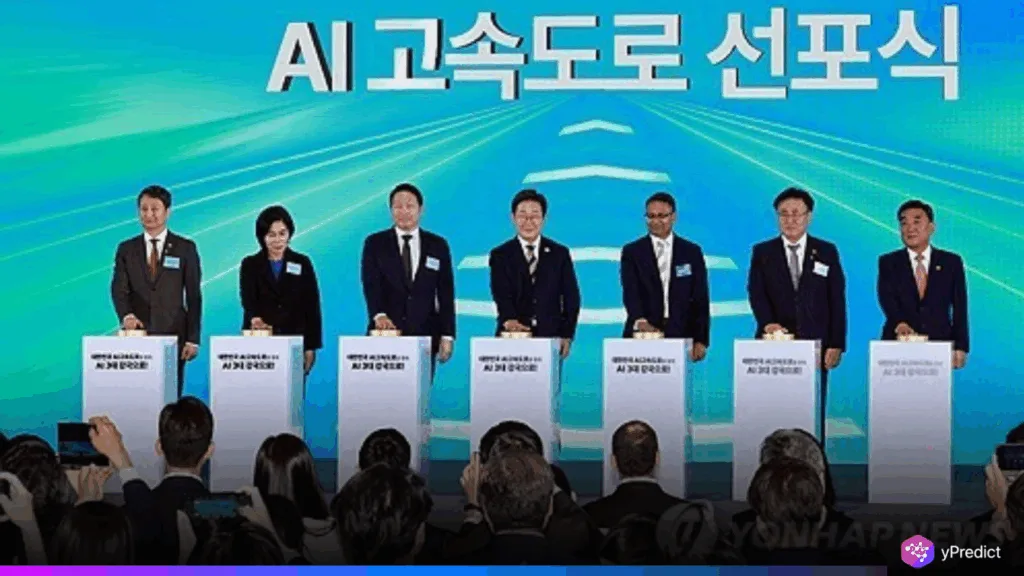
SK Group Chairman Chey Tae-won has called AI a critical pillar for the group’s future, urging company leaders to embrace AI across all sectors, not just IT. Speaking at a strategic meeting, Chey said, “The sustainable survival of companies depends on how they adapt to AI.” The directive aligns with SK’s broader push toward its “fourth quantum leap,” aiming to embed AI into operations in energy, biotech, manufacturing, and robotics. The group has committed ₩82 trillion (nearly $60B) by 2030 in AI and semiconductors. It marks a shift toward AI as South Korea’s next major economic engine.
SK and AWS Team Up for AI Data Center in Ulsan
As an effort to get its AI projects, SK Group has been collaborating with Amazon Web Services in making a hyperscale data center that builds AI in Ulsan. The center, scheduled to be launched in 2027, will be a technology powerhouse to launch AI-driven innovation in South Korea. The direct and indirect positions created by the project at the scale of 78,000 are mentioned in SK. Thus highlighting its importance in not only technological terms but also national economic development.
The Ulsan project is a unification of the strengths of major SK affiliates SK Telecom, SK Hynix, and SK Gas. By pooling strengths in the fields of telecommunications, semiconductors, and energy. Along with AWS, SK has the intention of developing a future-proof AI infrastructure. Providing compute, storage, database, and edge computing solutions optimized for generative AI workloads.
Attending the launching ceremony as the president, Lee Jae Myung promised to support AI with the full potential of the government. Making it a national growth motor. SK Group referred to hyperscale data centers as a national asset. One of the key components of gaining a geopolitical advantage and surviving technical tensions in the world. The teamwork is regarded as a show of confidence about long-term stability in South Korea. Future economic prospects and strengthen the standing of South Korea as an emerging force in the development of global AI and global AI infrastructure leadership.
Chey’s AI Push Targets Cross-Sector Integration
Chey Tae-won’s call to action signals more than an investment strategy; it’s a cultural and operational pivot for the entire SK ecosystem. His message: AI is not just for IT, but must become a core component in sectors traditionally seen as offline, such as energy, electricity, and biotech. The group’s roadmap involves transforming all SK subsidiaries into AI-integrated operations through next-gen data and software capabilities. The announcement builds on SK’s multiyear plan to lead in AI-driven industrial transformation. From smart factories to bioinformatics and digital twin platforms, SK is pushing for AI-native infrastructure that goes beyond automation, targeting insight, prediction, and autonomous optimization.
The inclusion of SK hynix (semiconductors), SK Telecom (network and cloud), and SK Gas (energy logistics) highlights SK’s strength in vertically integrated AI infrastructure. Their combined assets will funnel into a unified AI backbone. Supporting innovations in fields like drug discovery, carbon tracking, and supply chain optimization. Chey’s vision aims to future-proof SK’s relevance in a world where AI is increasingly shaping competitive advantage. His strategic framing of AI as a “sustainable survival tool” reflects growing global consensus: AI isn’t a feature anymore. It’s the foundation. And SK Group plans to be the one building it.
National and Global Stakes in Korea’s AI Strategy
The SK-AWS project isn’t just corporate strategy; it’s geopolitics. By anchoring a hyperscale AI data center in Ulsan, Korea positions itself as a reliable hub for AI infrastructure in Asia. In a world where data sovereignty and digital dominance are strategic assets. SK’s investment signals a bet on national resilience and global relevance. As countries race to control computing power and data flow, AI facilities like these become critical leverage points. SK’s move, backed by Amazon, hints at a realignment in global tech infrastructure. South Korea is emerging not just as a semiconductor powerhouse but as a long-term AI stronghold.






